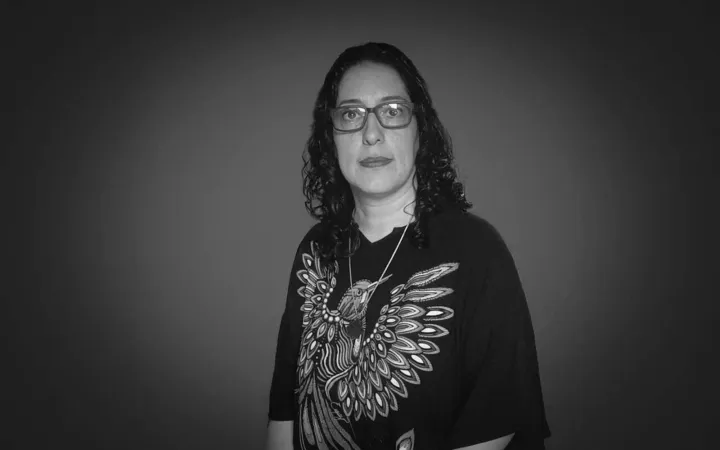
Por Laura Carrera
En algún momento de nuestra vida cotidiana experimentamos ansiedad, preocupación, angustia, tristeza y estrés. Generalmente, somos capaces de gestionar estas emociones; sin embargo, el entorno, nuestras circunstancias y las exigencias de la vida moderna pueden llevarnos a vivir en un estado de emociones descontroladas y bajo un estrés constante.
Esto es el caos emocional, es decir, un estado de turbulencia interna y desorden emocional donde experimentamos emociones descontroladas, frecuentemente cambiantes y de gran intensidad. Nos sentimos abrumados por los sentimientos y tenemos dificultad para gestionar adecuadamente las emociones y, en ocasiones, reaccionamos de manera desproporcionada.
Actualmente, muchas personas vivimos con algún nivel de caos emocional debido a los acontecimientos de nuestra vida; sin embargo, muchas veces no nos damos cuenta porque damos por sentadas la mayoría de nuestras experiencias.
Por ejemplo, hemos normalizado el caos que experimentamos en el transporte público o en el tráfico cotidiano y las decenas de memes o historias violentas que inundan las redes sociales, o la violencia en los noticieros. Nos sentamos por horas a ver películas y series violentas. Y, además, en este momento experimentamos una normalización de la violencia en los procesos electorales.
En la esfera personal, todas y todos nos presionamos para rendir más y para alcanzar el éxito académico, profesional, económico y personal.
Con el tiempo, esta presión puede generar estrés crónico, ansiedad y sentimientos de insuficiencia o fracaso. El estrés persistente, que parece no tener una causa clara, nos agobia, pero no sabemos identificarlo o pensamos que lo podemos manejar.
En algunos casos, los factores estresantes ambientales y sociales actúan como catalizadores o amplificadores de las dificultades emocionales preexistentes y, en otros, pueden ser la causa directa de nuevos problemas emocionales o de salud mental.
¿Cuáles son los factores que nos pueden llevar al caos emocional?
Primero, una sobrecarga de información y estímulos. La constante exposición a las redes sociales y fuentes de noticias nos absorbe a tal grado que no nos damos cuenta de que sobrecargamos nuestra capacidad de procesamiento, y esto nos produce fatiga mental y emocional.
Por otro lado, vivimos en un entorno de incertidumbre económica, de cambios tecnológicos rápidos y crisis globales, pandemias y conflictos nacionales e internacionales que generan un estado constante de alerta y ansiedad que agrava el estrés y afecta enormemente nuestra estabilidad emocional.
Tenemos dificultades para establecer límites claros entre el trabajo y la vida personal, especialmente con el aumento del trabajo a distancia y esto también produce agotamiento y estrés.
Vivimos una disminución de los espacios comunitarios, y algunas familias experimentan el debilitamiento de los lazos familiares y sociales. Lamentablemente, esto deja a muchas personas sin redes de apoyo esenciales para la gestión del estrés y las emociones.
Otra fuente de ansiedad y preocupación es la conciencia creciente sobre los problemas ambientales y sus potenciales impactos futuros, especialmente entre las generaciones más jóvenes.
Y a pesar de estar más “conectados” que nunca a través de la tecnología, experimentamos una sensación de aislamiento y soledad, un factor de riesgo que genera problemas de salud mental.
A la larga, el caos emocional genera malentendidos y conflictos en las interacciones con amigos, familiares y colegas en el trabajo. Y ni se diga el impacto que tiene en la salud física, incluyendo alteraciones del sueño, dolores de cabeza, problemas digestivos, etcétera.
Como respuesta, podemos tener un comportamiento de evitación, para no desencadenar emociones negativas, o bien de confrontación, como una forma de liberar toda esta tensión contenida. Y, luego, nos abruman los sentimientos de soledad y aislamiento porque cuando vivimos en el caos emocional sentimos que nadie nos comprende.
La desregulación emocional puede manifestarse de varias maneras, incluyendo reacciones emocionales excesivas o inapropiadas, dificultad para calmar emociones negativas, incapacidad para inhibir impulsos emocionales, o la incapacidad para acceder a estrategias de afrontamiento adecuadas en momentos de estrés.
¿Qué podemos hacer? Lo importante es tomar conciencia de las situaciones que contribuyen a este caos emocional y de que requerimos estrategias y técnicas para tener claridad mental, gestionar las emociones y enfrentar los retos cotidianos con paz y tranquilidad.
Necesitamos regularnos emocionalmente. Me refiero a la capacidad de experimentar y manejar nuestras emociones y cómo las expresamos para responder a las experiencias de una manera saludable y socialmente aceptable.
Entonces, para hacer frente a estos desafíos y minimizar su impacto en el bienestar emocional, es fundamental desarrollar estrategias de afrontamiento saludables, como aprender a gestionar nuestro tiempo y manejar el estrés, establecer límites saludables con el trabajo y la tecnología, y buscar conexiones significativas y apoyo en la comunidad.
Para aquellas personas que se sienten abrumadas, un paso fundamental es buscar apoyo de profesionales de la salud emocional, asistir a talleres, hacer ejercicio, cursos de meditación y otras estrategias que nos resulten útiles para manejar nuestras emociones.

Las opiniones expresadas son responsabilidad de sus autoras y son absolutamente independientes a la postura y línea editorial de Opinión 51.






Comments ()